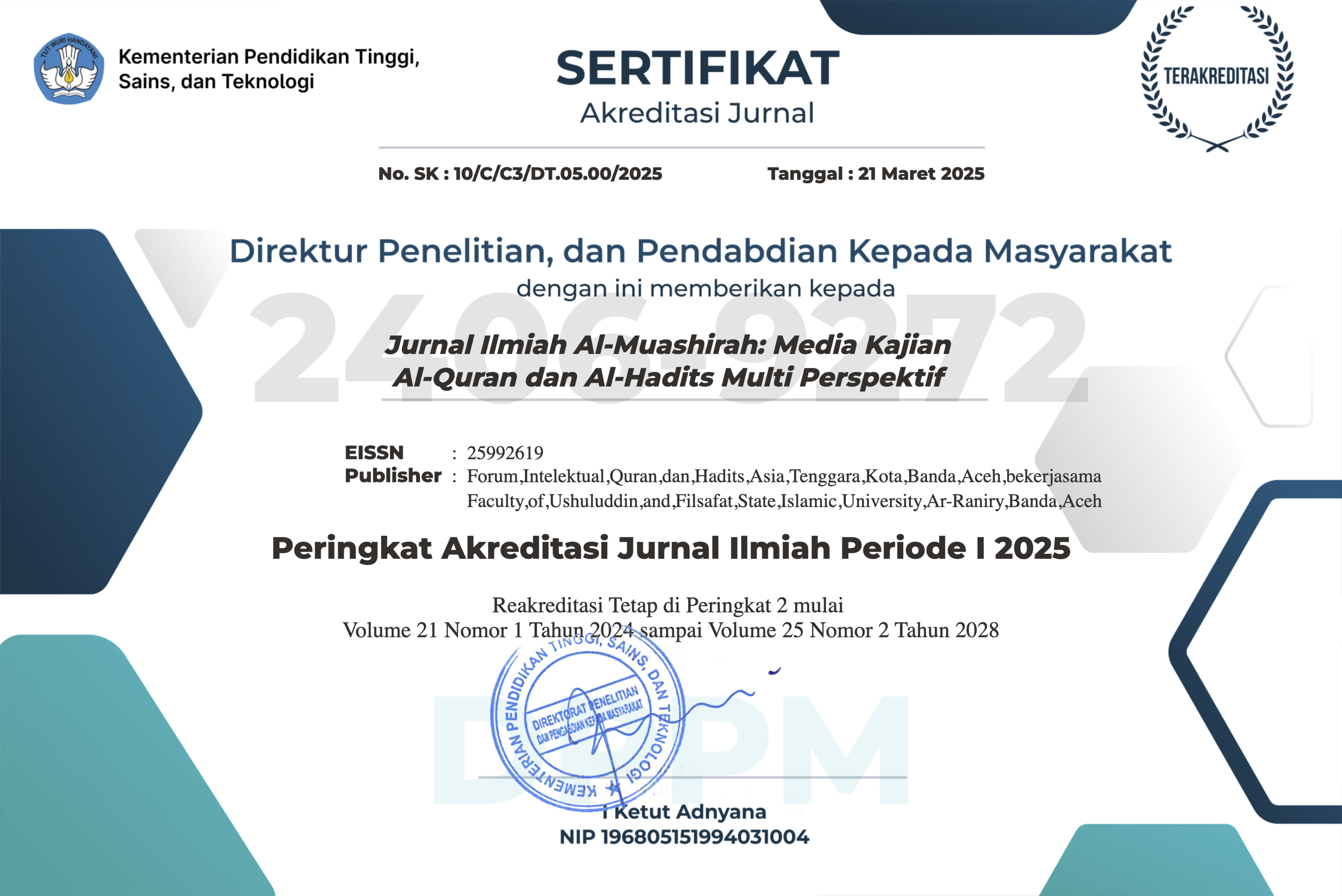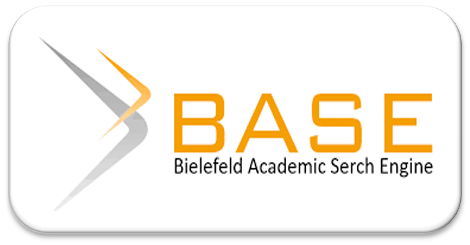Contextualization Review of the Interpretation of the Verses of the Fathul Qulub Book at the IMM Sukoharjo Regeneration Program
DOI:
https://doi.org/10.22373/jim.v20i1.16939Keywords:
Contextualization, Fathul Qulub, IMM SukoharjoAbstract
Abdullah Saeed introduced the concept of contextual findings, which he termed contextualization, by establishing a structured and systematic framework of values. This framework consists of four key steps: first, preliminary considerations; second, initiating completion; third, understanding the text's meaning; and fourth, connecting the text to the present context. In light of this, researchers delved into the awareness of contextualization, focusing on verses from the book Fathul Qulub, based on instructors in the IMM Sukoharjo cadre program. The purpose of this study was to discern a contextualized comprehension of the verses from the Fathul Qulub book within the IMM Sukoharjo cadre program. This research employed a qualitative approach, conducting field research. The participants were intermediate instructors within the IMM Sukoharjo cadre program, and the object of the study was to find verses in the Fathul Qulub book. The findings of the study revealed that instructors' interpretations of the Fathul Qulub book's verses did not align with Abdullah Saeed's contextual interpretation steps. Instead, instructors tended to directly proceed to the fourth step without completing the necessary preceding steps. This meant skipping the crucial step of linking the text's interpretation to the current context, specifically in terms of the cadre or organization. Even at this fourth step, the contextualization was not fully in line with Abdullah Saeed's theory.
Downloads
References
Ansori, Tafsir Bi Al-Ba’yi Memahami Al-Qur’an Dengan Ijtihad (Jakarta: Gaung Persada Press, 2011)
As’ad Ar, Muhammad Syafi’i, and M. Sultan Latif Rahmatullah, ‘Contextual Interpretation: Correlation of KH Bisri Mustafa’s Interpretation and Abdullah Saeed’s Contextual Approach to Q.S. Yūsuf: 55’, Ishlah: Jurnal Ilmu Ushuluddin, Adab Dan Dakwah, 4.2 (2022), 193–217 <https://doi.org/10.32939/ishlah.v4i2.142>
Fina, Lien Iffah Naf’atu, ‘Interpretasi Kontekstual: Studi Pemikiran Hermeneutika Al-Qur’an Abdullah Saeed’, ESENSIA: Jurnal Ilmu-Ilmu Ushuluddin, 12.1 (2011), 159–80 <https://doi.org/10.14421/esensia.v12i1.707>
Kamarul Zaman, Rahim, Alia Abdul Rashid, Nur Ilyani Mohamed Nawi, and Mujiburrahman Muhammad Saleh, ‘Model of Recovery Approaches For Obsessive-Compulsive Disorder From The Quranic Verses’, Malaysian Journal of Medicine and Health Sciences, 18.s19 (2022), 99–104 <https://doi.org/10.47836/mjmhs.18.s19.16>
Kusrini, Siti, ‘Methodology of Quranic Interpretation in Faidur Rahman by KH. Saleh Darat’, Tafhim Al-’Ilmi, 13.2 (2022), 228–39 <https://doi.org/10.37459/tafhim.v13i2.5456>
Lufaefi, Lufaefi, ‘Tafsir Al-Mishbah: Tekstualitas, Rasionalitas Dan Lokalitas Tafsir Nusantara’, Substantia: Jurnal Ilmu-Ilmu Ushuluddin, 2019 <https://api.semanticscholar.org/CorpusID:211931047>
Majelis Pendidikan Kader, Sistem Perkaderan Muhammadiyah, 2018
Mibtadin, M, ‘MENAFSIRKAN AL-QUR’AN (Mengkaji Metode, Bentuk, Dan Kaidah-Kaidah Dalam Penafsiran Al-Qur’an)’, Mamba’ul ’Ulum, 15.2 (2019), 28–40 <https://doi.org/10.54090/mu.21>
Muhammad bin Mukram bin Manzhur al-Afriqi, ‘Lisan Al-’Arab’, Dar Sadir, V, 55
Mundzir, Ilham, and Yulianti Muthmainnah, ‘The Progressiveness of Quranic Interpretation in the Fatwa of Muhammadiyah on Female Circumcision’, Indonesian Journal of Islam and Muslim Societies, 12.2 (2022), 285–311 <https://doi.org/10.18326/ijims.v12i2.285-311>
Musfiroh, Mayadina Rohmi, and Sahiron Syamsuddin, ‘Contextualization of Qiwamah Meaning: Reflection on Abdullah Saeed, Application and Consistency’, PALASTREN Jurnal Studi Gender, 13.2 (2020), 321 <https://doi.org/10.21043/palastren.v13i2.7191>
Mustofa, Dedy, Interview with An-Najmi Fikri, 2022
———, Interview withtur Muhammad Adam Ilham Mizani, 2022
Nata, Abuddin, Metodologi Studi Islam (Jakarta: Raja Grafindo Persada, 2011)
Nurani, Shinta, ‘Hierarchy of Values in Qur’anic Hermeneutic of Abdullah Saeed (A Study of Contextual Interpretation in Q.S. Al-Hujurat)’, AL QUDS : Jurnal Studi Alquran Dan Hadis, 5.1 (2021), 159 <https://doi.org/10.29240/alquds.v5i1.1951>
Parisi, Salman, ‘Penyimpangan Dalam Tafsir Al-Qur’an’, Hikmah Journal of Islamic Studies, 15.2 (2020), 116 <https://doi.org/10.47466/hikmah.v15i2.138>
Penyusun, Tim, Kamus Besar Bahasa Indonesia (Jakarta: Balai Pustaka, 1998)
Risman, Kadar, and Asman Asman, ‘THE PATTERN OF ISLAMIC CHARACTER EDUCATION OF THE MUHAMMADIYAH STUDENT ASSOCIATION (IMM) AND ITS IMPLEMENTATION IN FORMAL EDUCATION’, Profetika: Jurnal Studi Islam, 23.2 (2022), 197–203 <https://doi.org/10.23917/profetika.v23i2.19646>
Rouf, Abdul, ‘Al-Quran Dalam Sejarah (Diskursus Seputar Sejarah Penafsiran Al-Qur’an)’, Mumtaz: Jurnal Studi Al-Qur’an Dan Keislaman, 1.1 (2019), 1–22 <https://doi.org/10.36671/mumtaz.v1i1.1>
Saeed, Abdullah, Al-Qur’an Abad 21; Tafsir Kontekstual, ed. by terj. Ervan Nurtawab (Bandung: Mizan, 2016)
———, Interpreting the Qur’an: Towards a Contemporary Approach (New York: outledge, 2006)
Shihab, M. Quraish, Membumikan Al-Qur’an: Fungsi Dan Peran Wahyu Dalam Kehidupan Masyarakat (Bandung: Mizan, 1994)
Shihab, Umar, Kontekstualisasi Al-Qur’an, Kajian Tematik Atas Ayat-Ayat Dalam Al-Qur’an (Jakarta: Penamadani, 2003)
Shobron, Sudarno, Moh. Abdul Kholiq Hasan, and Hasan Kaprawi, ‘Metode Pendidikan Islam Dalam Tafsir Al-Mishbah Perspektif Muhammad Quraish Shihab’, Profetika Jurnal Studi Islam, Vol. 18.2 (2017), 120–29 <http://journals.ums.ac.id/index.php/profetika/article/view/7430>
Suryono, Suryono, Ari Anshori, and Muthoifin Muthoifin, ‘METODE PEMBELAJARAN TAḤFĪẒ AL-QUR’AN DI MADRASAH ALIYAH TAḤFĪẒ NURUL IMAN KARANGANYAR DAN MADRASAH ALIYAH AL-KAHFI SURAKARTA’, Profetika: Jurnal Studi Islam, 17.02 (2017), 29–35 <https://doi.org/10.23917/profetika.v17i02.5295>
Tim MPK PP Muhammadiyah, Fathul Qulub Panduang Tadarus Dalam Pelatihan (Yogyakarta: Div. Penerbitan MPK PP Muhammadiyah, 2010)
Ulya, Berbagai Pendekatan Dalam Studi Al-Qur’an - Penggunaan Ilmu-Ilmu Sosial, Humaniora, Dan Kebahasaan Dalam Penafsiran Al-Qur’an, 2017
Waliko, Waliko, ‘HERMENEUTIKA SEBAGAI INSTRUMEN ALTERNATIF UNTUK MENAFSIRKAN AL-QUR’AN’, Citizen : Jurnal Ilmiah Multidisiplin Indonesia, 1.1 (2021), 1–8 <https://doi.org/10.53866/jimi.v1i1.2>
Downloads
Published
Issue
Section
License
Authors who publish in Jurnal Ilmiah Al-Mu'ashirah agree to the following terms:
- Authors retain copyright and grant the journal right of first publication with the work simultaneously licensed under a Attribution-ShareAlike 4.0 International (CC BY-SA 4.0) License that allows others to share the work with an acknowledgment of the work's authorship and initial publication in this journal.
- Authors are able to enter into separate, additional contractual arrangements for the non-exclusive distribution of the journal's published version of the work (e.g., post it to an institutional repository or publish it in a book), with an acknowledgment of its initial publication in this journal.
- Authors are permitted and encouraged to post their work online (e.g., in institutional repositories or on their website) prior to and during the submission process, as it can lead to productive exchanges, as well as earlier and greater citation of published work (See The Effect of Open Access).













